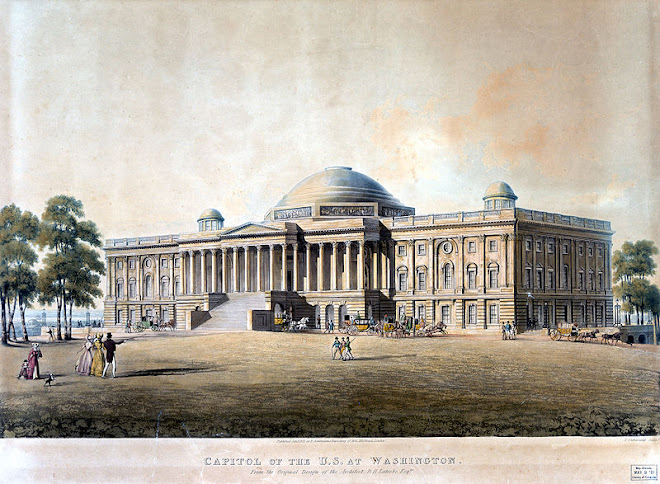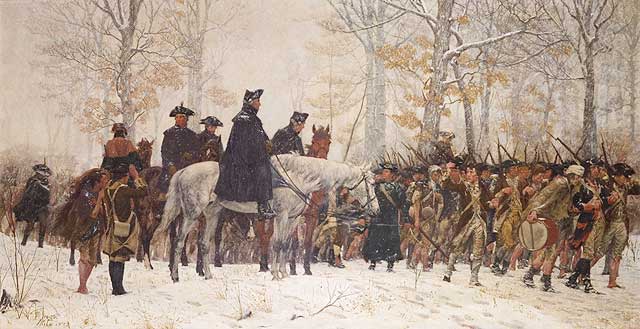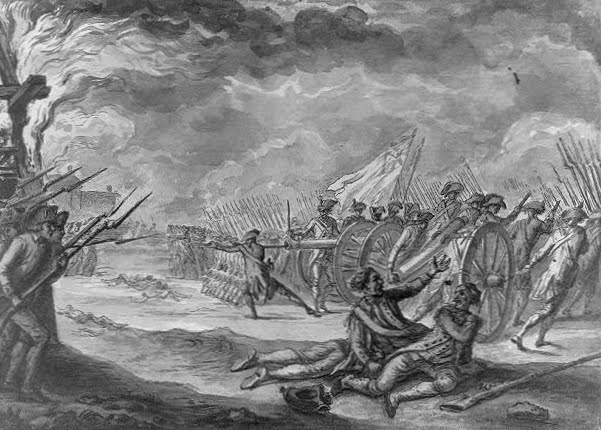From Thomas Woods and Lew Rockwell.com:
The Phony Arguments for Presidential War Powers
by Thomas E. Woods, Jr.
A U.S. president has attacked another country, so it’s time for the scam artists to pull out their fake constitutional arguments in support of our dear leader. Not all of them are doing so, to be sure – in fact, it’s been rather a hoot to hear supporters of the Iraq war suddenly caterwauling about the Constitution’s restraints on the power of the president to initiate hostilities abroad. But I’m told that radio host Mark Levin criticized Ron Paul on his program the other day on the precise grounds that the congressman didn’t know what he was talking about when it came to war powers and the Constitution.
That means it’s time to lay out all the common claims, both constitutional and historical, advanced on behalf of presidential war powers, and refute them one by one.
“The president has the power to initiate hostilities without consulting Congress.”
Ever since the Korean War, Article II, Section 2 of the Constitution – which refers to the president as the “Commander in Chief of the Army and Navy of the United States” – has been interpreted this way.
But what the framers actually meant by that clause was that once war has been declared, it was the President’s responsibility as commander-in-chief to direct the war. Alexander Hamilton spoke in such terms when he said that the president, although lacking the power to declare war, would have “the direction of war when authorized or begun.” The president acting alone was authorized only to repel sudden attacks (hence the decision to withhold from him only the power to “declare” war, not to “make” war, which was thought to be a necessary emergency power in case of foreign attack).
The Framers assigned to Congress what David Gray Adler has called “senior status in a partnership with the president for the purpose of conducting foreign policy.” Congress possesses the power “to regulate Commerce with foreign Nations,” “to raise and support Armies,” to “grant Letters of Marque and Reprisal,” to “provide for the common Defense,” and even “to declare War.” Congress shares with the president the power to make treaties and to appoint ambassadors. As for the president himself, he is assigned only two powers relating to foreign affairs: he is commander-in-chief of the armed forces, and he has the power to receive ambassadors.
At the Constitutional Convention, the delegates expressly disclaimed any intention to model the American executive exactly after the British monarchy. James Wilson, for example, remarked that the powers of the British king did not constitute “a proper guide in defining the executive powers. Some of these prerogatives were of a Legislative nature. Among others that of war & peace.” Edmund Randolph likewise contended that the delegates had “no motive to be governed by the British Government as our prototype.”
To repose such foreign-policy authority in the legislative rather than the executive branch of government was a deliberate and dramatic break with the British model of government with which they were most familiar, as well as with that of other nations, where the executive branch (in effect, the monarch) possessed all such rights, including the exclusive right to declare war. The Framers of the Constitution believed that history testified to the executive’s penchant for war. As James Madison wrote to Thomas Jefferson, “The constitution supposes, what the History of all Governments demonstrates, that the Executive is the branch of power most interested in war, and most prone to it. It has accordingly with studied care vested the question of war in the Legislature.” Madison even proposed excluding the president from the negotiation of peace treaties, on the grounds that he might obstruct a settlement out of a desire to derive “power and importance from a state of war.”
At the Constitutional Convention, Pierce Butler “was for vesting the power in the President, who will have all the requisite qualities, and will not make war but when the nation will support it.” Butler’s motion did not receive so much as a second.
James Wilson assured the Pennsylvania Ratifying Convention, “This system will not hurry us into war; it is calculated to guard against it. It will not be in the power of a single man, or a single body of men, to involve us in such distress; for the important power of declaring war is vested in the legislature at large: this declaration must be made with the concurrence of the House of Representatives: from this circumstance we may draw a certain conclusion that nothing but our interest can draw us into war.”
In Federalist #69, Alexander Hamilton explained that the president’s authority “would be nominally the same with that of the King of Great Britain, but in substance much inferior to it. It would amount to nothing more than the supreme command and direction of the military and naval forces, as first general and admiral of the confederacy; while that of the British king extends to the declaring of war, and to the raising and regulating of fleets and armies; all which by the constitution under consideration would appertain to the Legislature.”
According to John Bassett Moore, the great authority on international law who (among other credentials) occupied the first professorship of international law at Columbia University, “There can hardly be room for doubt that the framers of the constitution, when they vested in Congress the power to declare war, never imagined that they were leaving it to the executive to use the military and naval forces of the United States all over the world for the purpose of actually coercing other nations, occupying their territory, and killing their soldiers and citizens, all according to his own notions of the fitness of things, as long as he refrained from calling his action war or persisted in calling it peace.”
In conformity with this understanding, George Washington’s operations on his own authority against the Indians were confined to defensive measures, conscious as he was that the approval of Congress would be necessary for anything further. “The Constitution vests the power of declaring war with Congress,” he said, “therefore no offensive expedition of importance can be undertaken until after they have deliberated upon the subject, and authorized such a measure.”
“John Adams made war on France without consulting Congress.”
Supporters of a broad executive war power have sometimes appealed to the Quasi War with France, in the closing years of the eighteenth century, as an example of unilateral warmaking on the part of the president. Francis Wormuth, an authority on war powers and the Constitution, describes that contention as “altogether false.” John Adams “took absolutely no independent action. Congress passed a series of acts that amounted, so the Supreme Court said, to a declaration of imperfect war; and Adams complied with these statutes.” (Wormuth’s reference to the Supreme Court recalls a decision rendered in the wake of the Quasi War, in which the Court ruled that Congress could either declare war or approve hostilities by means of statutes that authorized an undeclared war. The Quasi War was an example of the latter case.)
An incident that occurred during the Quasi War throws further light on the true extent of presidential war powers. Congress authorized the president to seize vessels sailing to French ports. But President Adams, acting on his own authority and without the sanction of Congress, instructed American ships to capture vessels sailing either to or from French ports. Captain George Little, acting under the authority of Adams’ order, seized a Danish ship sailing from a French port. When Little was sued for damages, the case made its way to the Supreme Court. Chief Justice John Marshall ruled that Captain Little could indeed be sued for damages in the case. “In short,” writes war powers expert Louis Fisher in summary, “congressional policy announced in a statute necessarily prevails over inconsistent presidential orders and military actions. Presidential orders, even those issued as Commander in Chief, are subject to restrictions imposed by Congress.”
“Jefferson acted unilaterally against the Barbary pirates.”
Another incident frequently cited on behalf of a general presidential power to deploy American forces and commence hostilities involves Jefferson’s policy toward the Barbary states, which demanded protection money from governments whose ships sailed the Mediterranean. Immediately prior to Jefferson’s inauguration in 1801, Congress passed naval legislation that, among other things, provided for six frigates that “shall be officered and manned as the President of the United States may direct.” It was to this instruction and authority that Jefferson appealed when he ordered American ships to the Mediterranean. In the event of a declaration of war on the United States by the Barbary powers, these ships were to “protect our commerce & chastise their insolence – by sinking, burning or destroying their ships & Vessels wherever you shall find them.”
In late 1801, the pasha of Tripoli did declare war on the U.S. Jefferson sent a small force to the area to protect American ships and citizens against potential aggression, but insisted that he was “unauthorized by the Constitution, without the sanction of Congress, to go beyond the line of defense”; Congress alone could authorize “measures of offense also.” Thus Jefferson told Congress: “I communicate [to you] all material information on this subject, that in the exercise of this important function confided by the Constitution to the Legislature exclusively their judgment may form itself on a knowledge and consideration of every circumstance of weight.”
Jefferson consistently deferred to Congress in his dealings with the Barbary pirates. “Recent studies by the Justice Department and statements made during congressional debate,” Louis Fisher writes, “imply that Jefferson took military measures against the Barbary powers without seeking the approval or authority of Congress. In fact, in at least ten statutes, Congress explicitly authorized military action by Presidents Jefferson and Madison. Congress passed legislation in 1802 to authorize the President to equip armed vessels to protect commerce and seamen in the Atlantic, the Mediterranean, and adjoining seas. The statute authorized American ships to seize vessels belonging to the Bey of Tripoli, with the captured property distributed to those who brought the vessels into port. Additional legislation in 1804 gave explicit support for ‘warlike operations against the regency of Tripoli, or any other of the Barbary powers.’”
Consider also Jefferson’s statement to Congress in late 1805 regarding a boundary dispute with Spain over Louisiana and Florida. According to Jefferson, Spain appeared to have an “intention to advance on our possessions until they shall be repressed by an opposing force. Considering that Congress alone is constitutionally invested with the power of changing our condition from peace to war, I have thought it my duty to await their authority for using force…. But the course to be pursued will require the command of means which it belongs to Congress exclusively to yield or to deny. To them I communicate every fact material for their information and the documents necessary to enable them to judge for themselves. To their wisdom, then, I look for the course I am to pursue, and will pursue with sincere zeal that which they shall approve.”
“Presidents have sent men into battle hundreds of times without getting congressional authorization.”
This argument, like so much propaganda, originated with the U.S. government itself. At the time of the Korean War, a number of congressmen contended that “history will show that on more than 100 occasions in the life of this Republic the President as Commander in Chief has ordered the fleet or the troops to do certain things which involved the risk of war” without the consent of Congress. In 1966, in defense of the Vietnam War, the State Department adopted a similar line: “Since the Constitution was adopted there have been at least 125 instances in which the President has ordered the armed forces to take action or maintain positions abroad without obtaining prior congressional authorization, starting with the ‘undeclared war’ with France (1798-1800).”
We have already seen that the war with France in no way lends support to those who favor broad presidential war powers. As for the rest, the great presidential scholar Edward S. Corwin pointed out that this lengthy list of alleged precedents consisted mainly of “fights with pirates, landings of small naval contingents on barbarous or semi-barbarous coasts, the dispatch of small bodies of troops to chase bandits or cattle rustlers across the Mexican border, and the like.”
To support their position, therefore, the neoconservatives and their left-liberal clones are counting chases of cattle rustlers as examples of presidential warmaking, and as precedents for sending millions of Americans into war with foreign governments on the other side of the globe.
“The War Powers Resolution of 1973 gives the president the power to commit troops anywhere he likes for 90 days.”
Which is why it’s manifestly unconstitutional. I’ve written on this elsewhere.
“If the United Nations authorizes military action, the president does not need to consult Congress.”
The UN Charter itself notes that the Security Council’s commitment of member nations’ troops must be authorized by these nations’ “respective constitutional processes.” The Congressional Research Service’s Louis Fisher explains further: “Assured by Truman that he understood and respected the war prerogatives of Congress, the Senate ratified the UN Charter. Article 43 provided that all UN members shall make available to the Security Council, in accordance with special agreements, armed forces and other assistance. Each nation would ratify those agreements ‘in accordance with their respective constitutional processes.’ It then became the obligation of Congress to pass legislation to define the constitutional processes of the United States. Section 6 of the UN Participation Act of 1945 states with singular clarity that the special agreements ‘shall be subject to the approval of the Congress by appropriate Act or joint resolution.’ The procedure was specific and clear. Both branches knew what the Constitution required. The President would first have to obtain the approval of Congress.”
The UN Participation Act’s provisions regarding military action and the president have often been misread, thanks to a qualification in Article 6. But that qualification simply means that once the president has obtained congressional approval for a special agreement with the UN Security Council to make American forces available to the UN, he does not need congressional approval a second time to implement that agreement.
Fisher elaborates on the UN Participation Act of 1945 here. (See especially pp. 1249-1250.)
The remaining claims, somewhat more technical in nature, have been put forth most memorably by John Yoo, former deputy assistant attorney general under George W. Bush. These are paraphrases of Yoo’s positions. They are replied to in much more detail in Who Killed the Constitution? by the present author and Kevin Gutzman.
“In the eighteenth century, a ‘declaration of war’ was a merely rhetorical and communicative act – a ‘courtesy to the enemy’ – and did not involve the initiation or authorization of hostilities. Thus in granting Congress the power to declare war, the Constitution had merely given it the power to communicate to an enemy people (as well as to neutrals and to the country’s own citizens that a state of war existed; the president, on the other hand, retained the power actually to bring the United States into war by commencing military action.”
This is partly correct. In the eighteenth century a “declaration of war” could indeed have this lesser meaning. But a review of eighteenth-century usage reveals that to “declare war” could also mean actually to begin a war.
Consider also that as the Constitution was being debated, Federalists sought to reassure skeptical anti-Federalists that the president’s powers were not so expansive after all. For one thing, the Federalists said, the president lacked the power to declare war. In order for their argument to carry any weight, “declare war” must have been taken to mean the power to initiate hostilities – for no anti-Federalist would have been appeased by “Sure, the president can take the country to war on his own initiative, but the power to draft declaratory statements will rest with Congress!”
If Yoo’s argument were correct, we should expect to see presidents in the years immediately following ratification of the Constitution taking bold military action without concerning themselves much about the will of Congress, which according to Yoo had only the power to issue declaratory statements. But as we have seen in the examples of Washington, Adams, and Jefferson, the opposite was in fact the case; these early presidents were careful to defer to Congress.
“Congress may have some power over major wars, but lesser uses of force are reserved to the president alone.”
The evidence from the early republic contradicts this claim. Supreme Court justice Samuel Chase summed up the reigning doctrine in 1800: “Congress is empowered to declare a general war, or congress may wage a limited war; limited in place, in objects and in time.” The 1804 case of Little v. Barreme involved a ship commander who, during the Quasi War with France in the late 1790s, had seized a ship that he thought was illegally trading with France. The commander was following a directive from President John Adams in seizing this ship, which had been coming from France. But Congress had authorized President Adams only to seize ships going to France; in short, the president’s directive ventured beyond what congress had called for in this limited war. In a unanimous decision, the Court declared that the commander was liable for damages even though he had acted in accordance with a presidential directive. No such presidential directive could override the authority of Congress, said the Court.
“The Vesting Clause grants the president a wide array of unspecified powers pertaining to foreign affairs.”
You won’t hear this argument in many casual discussions of presidential war powers, but since Yoo cited it in a draft memorandum he wrote for the Department of Defense in early 2002, it’s worth a brief reply. (Again, a lengthier reply can be found in Who Killed the Constitution?)
The Vesting Clause can be found in Article II, Section 1 of the Constitution; “The executive Power shall be vested in a President of the United States of America.” According to this view, the Vesting Clause bestows on the president a host of unspecified powers in addition to the specific ones listed in the rest of Article II. The Framers of the Constitution, they say, thereby showed that they wanted the president to exercise all powers that would have been recognized in the eighteenth century as being fundamentally executive in nature, even if those powers are not actually mentioned in the Constitution. Congress, on the other hand, is assigned no such open-ended authority but is instead limited by the Constitution to all “legislative Powers herein granted,” a reference to the specific list of powers that then follows. The conclusion: the president may rightly exercise all powers relating to foreign affairs (since such powers are by their nature executive) except those specifically assigned to Congress.
Unfortunately for Yoo, he will not find any support for his views on executive power and the Vesting Clause in the state constitutions drawn up after 1776, in the Federalist, or in the state ratification debates. Nowhere in the state constitutions do we see any indication of an intent to vest the executive with an array of unspecified powers beyond those that were expressly mentioned. In Federalist #69, Alexander Hamilton argued that the American president would be much weaker than the British king, and cited the specific list of powers the Constitution grants the president. That argument would have been absurd and dishonest if the Vesting Clause had given the president an additional reservoir of powers beyond those Hamilton catalogued. Curtis Bradley and Martin Flaherty, writing in the Michigan Law Review, conclude that “in the thousands of pages recording these debates the argument that the Vesting Clause grants the president a general foreign affairs power simply does not appear.”
In short, there is no constitutional support for the presidential war powers claimed by mainstream left and right. That’s why they usually wind up claiming that the congressional power to declare war is “obsolete.” They can’t deny its existence, so they deny the document in which it is contained. And that means they lose the argument.
.gif)






























